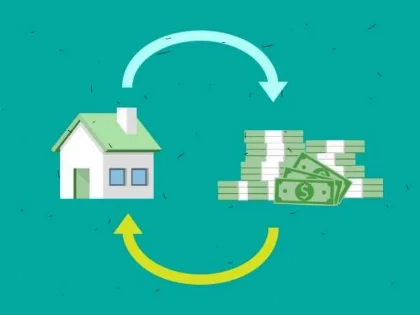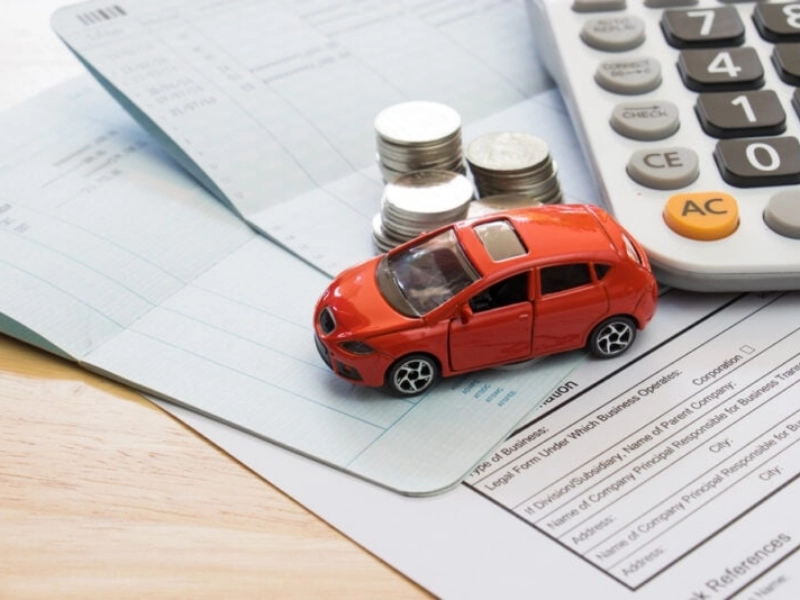Car Loans 101: Financing Your Dream Vehicle
You will probably need to obtain financing unless you are able to pay cash for your ideal vehicle. By understanding how loans operate, you can make informed decisions and save money. A significant portion of your loan's overall cost is determined by the interest rate you pay. Gaining knowledge about interest rates can enable you to negotiate a favorable deal and simplify your monthly payments.
Evaluate your financial condition.

Set aside money.
 A down payment for a car is not necessary, but it makes financial sense. It reduces the total amount you must finance, which lowers your monthly payments and saves you money on interest over the course of the loan.
Additionally, it tells lenders that you're not as risky, which could lead to better loan terms—especially for borrowers with inadequate credit. For instance, in order to enable you to purchase a car with a lower down payment than would otherwise be necessary, a lender can provide a greater loan-to-value (LTV) ratio.
Setting goals and creating a savings strategy might facilitate reaching that down payment. Online solutions are also available to automate the process and allocate a portion of your available funds to your down payment on a monthly basis.
A down payment for a car is not necessary, but it makes financial sense. It reduces the total amount you must finance, which lowers your monthly payments and saves you money on interest over the course of the loan.
Additionally, it tells lenders that you're not as risky, which could lead to better loan terms—especially for borrowers with inadequate credit. For instance, in order to enable you to purchase a car with a lower down payment than would otherwise be necessary, a lender can provide a greater loan-to-value (LTV) ratio.
Setting goals and creating a savings strategy might facilitate reaching that down payment. Online solutions are also available to automate the process and allocate a portion of your available funds to your down payment on a monthly basis.
Conserve Cash
 Before applying for a vehicle loan, there are numerous ways to save money. You can reduce your credit card debt, raise your credit score, and make a down payment (cash or the value of a trade-in). By following these procedures, you can ultimately save thousands of dollars by obtaining a cheaper interest rate on your auto loan.
You can also accelerate your auto loan payoff by switching from monthly to biweekly payments. This can significantly lower your total interest costs by enabling you to make 26 partial payments per year as opposed to just one complete payment. Before proceeding, though, make sure to review your loan agreement for any prepayment penalties. Otherwise, you may not find the extra costs justified.
Before applying for a vehicle loan, there are numerous ways to save money. You can reduce your credit card debt, raise your credit score, and make a down payment (cash or the value of a trade-in). By following these procedures, you can ultimately save thousands of dollars by obtaining a cheaper interest rate on your auto loan.
You can also accelerate your auto loan payoff by switching from monthly to biweekly payments. This can significantly lower your total interest costs by enabling you to make 26 partial payments per year as opposed to just one complete payment. Before proceeding, though, make sure to review your loan agreement for any prepayment penalties. Otherwise, you may not find the extra costs justified.
Request Assistance
 Many people require vehicle financing because they are unable to purchase a car in full. While it may be complicated, there are ways to improve your chances of getting the best loan terms before looking at cars.
These actions include reviewing your credit report and score, and, if necessary, correcting any inaccuracies you discover. This is significant because your credit report and score influence the amount you borrow, the interest rate you pay, and whether you are approved for a car loan at all.
Additionally, it's a good idea to compare lenders. By prequalifying with several lenders, you can view estimated loan rates and terms without a hard query on your credit record.
Many people require vehicle financing because they are unable to purchase a car in full. While it may be complicated, there are ways to improve your chances of getting the best loan terms before looking at cars.
These actions include reviewing your credit report and score, and, if necessary, correcting any inaccuracies you discover. This is significant because your credit report and score influence the amount you borrow, the interest rate you pay, and whether you are approved for a car loan at all.
Additionally, it's a good idea to compare lenders. By prequalifying with several lenders, you can view estimated loan rates and terms without a hard query on your credit record.
Engage in negotiations.
 Purchasing a car might be scary financially. However, you can receive a loan that will fit your finances well if you have a clear budget in mind and are aware of your credit score.
In the long run, being able to negotiate can save you hundreds or even thousands of dollars. Although it's not mandatory for dealers and lenders to provide the best rates, mastering the art of effective negotiation can significantly lower the total cost of your loan.
Use internet tools like Kelly Blue Book and Autotrader to find the car's value before making any further inquiries. Prior to visiting a dealer, you can compare rates and terms to make sure you are receiving the best deal. You can also obtain preapprovals from several lenders and credit unions.
Purchasing a car might be scary financially. However, you can receive a loan that will fit your finances well if you have a clear budget in mind and are aware of your credit score.
In the long run, being able to negotiate can save you hundreds or even thousands of dollars. Although it's not mandatory for dealers and lenders to provide the best rates, mastering the art of effective negotiation can significantly lower the total cost of your loan.
Use internet tools like Kelly Blue Book and Autotrader to find the car's value before making any further inquiries. Prior to visiting a dealer, you can compare rates and terms to make sure you are receiving the best deal. You can also obtain preapprovals from several lenders and credit unions.








